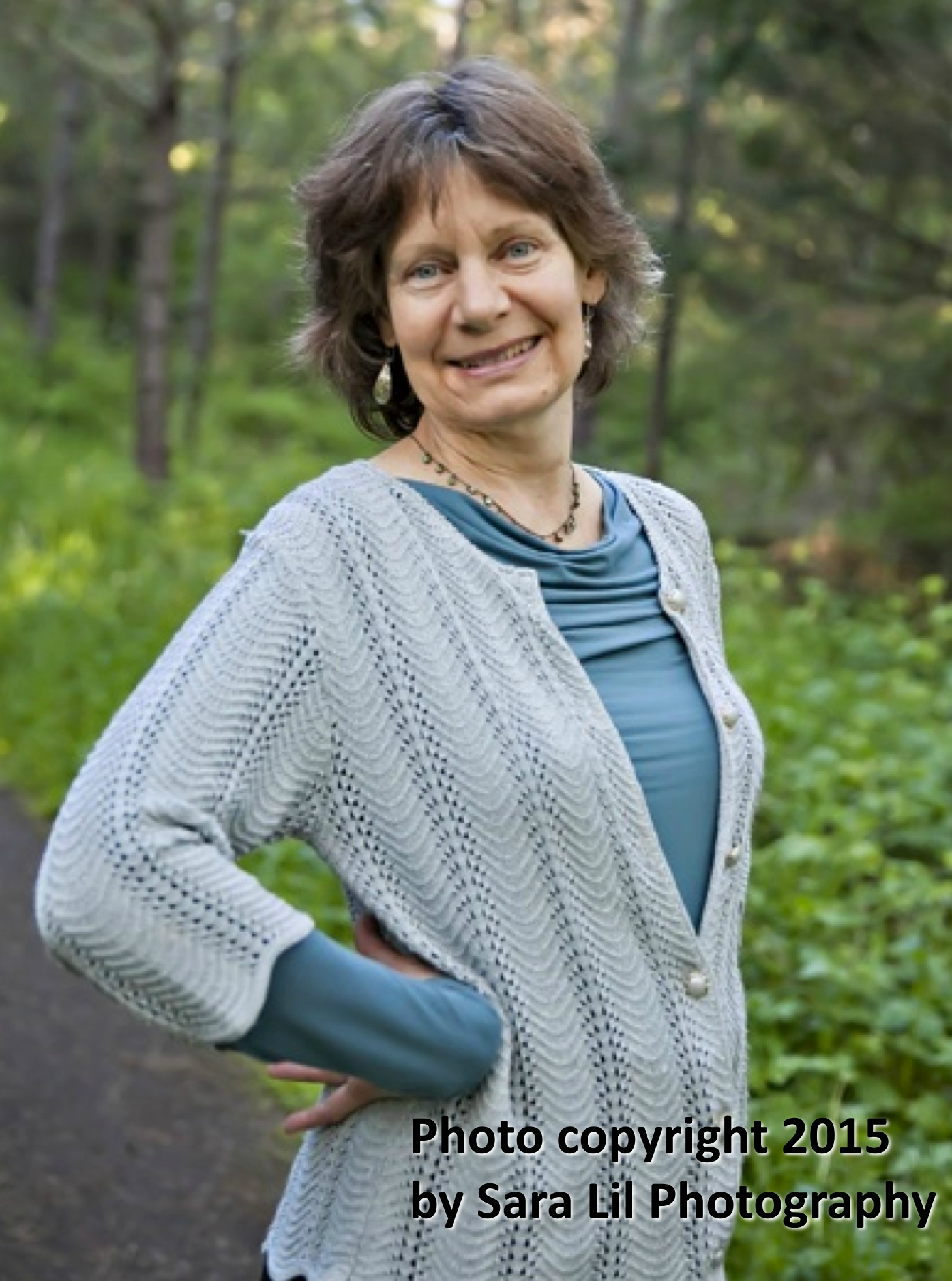 PHONE: 541-738-2868
PHONE: 541-738-2868
WEBSITE: ecoeditoronline.com and earth-and-eros.blogspot.com
OWNER: Lorraine Anderson
YEARS IN BUSINESS: 34
WHAT SHE SELLS: Editorial services focused on environmental topics
WHY YOU SHOULD GO: To make sure your written message connecting people to nature is as clear, direct, correct, and engaging as possible
If you think of your favorite book, chances are you can name the author right off the top of your head. But can you name the book’s editor as quickly? You may also notice how authors always seem to thank their editors in their acknowledgments, and there’s a good reason for that. We as readers can never truly see the positive effect editors have on the books we read. Of course, the magnitude of this effect depends on the skill and character of the editor. Lorraine Anderson has 34 years of editing under her belt, enough to confidently say that she makes her authors shine. Invaluable experience, plus a truly inspiring passion for sustainability, should have Anderson at the top of every environmentally focused writer’s list.
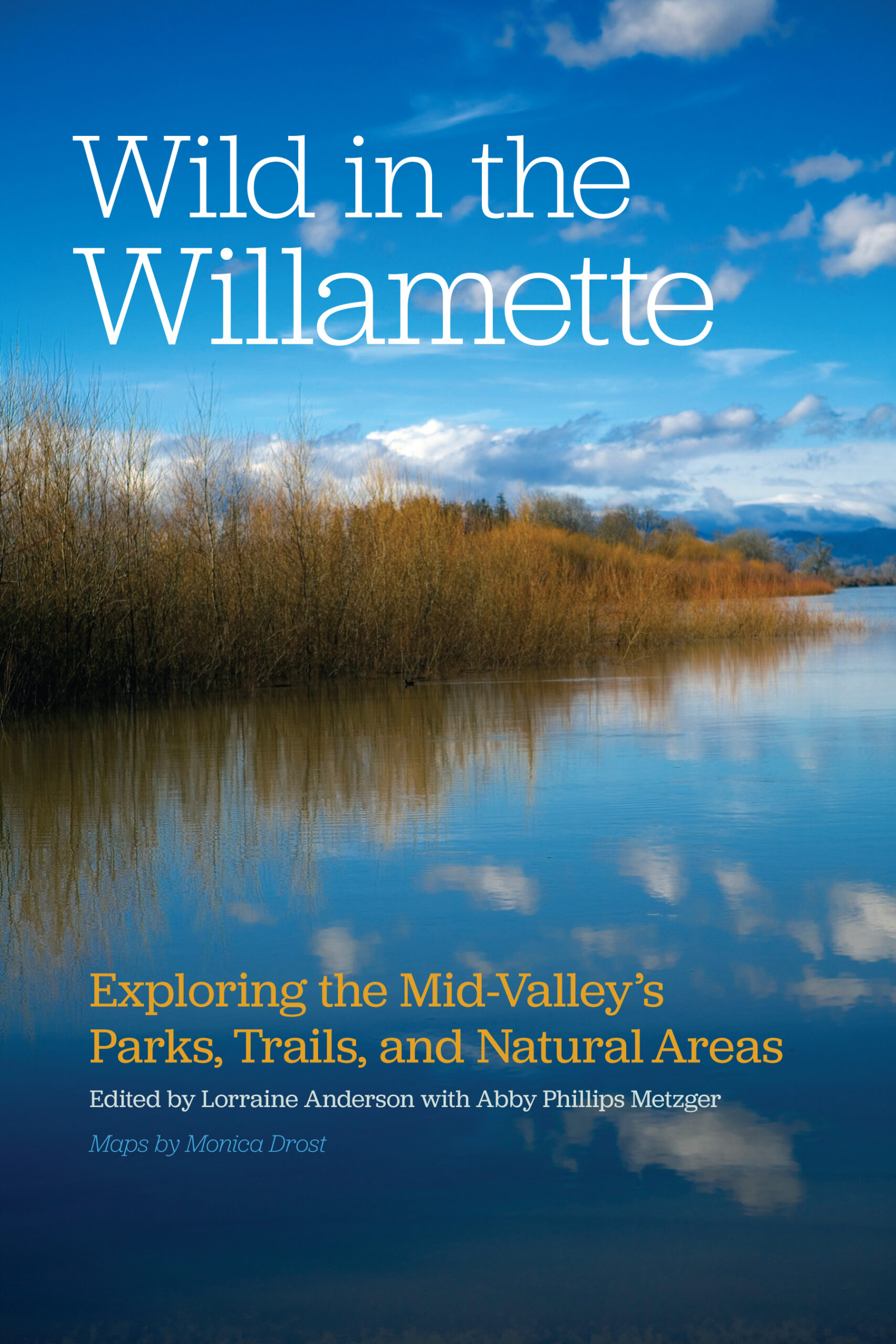
Lorraine, when and why did you decide to start your business? After graduating with a degree in English from the University of Utah, I worked for a textbook publisher in the Bay Area, but it wasn’t exactly what I wanted to be doing. So I thought I’d freelance until I figured out what that was. At first I lived in Silicon Valley, and I did quite a bit of technical editing. I edited reference manuals for Apple Computer when it was a baby. I knew in the late 1980s that I wanted to help articulate alternatives to the status quo, but it took me many years to turn my editing in that direction. When I moved to Oregon in 2005, I was able to start focusing almost exclusively on editing nature and sustainability-related writing.
Tell us more about your books and services. Do you have any favorites? Almost everything I edit nowadays has to do with how humans interact with nature. I especially enjoy helping those with special expertise find the best way to engage readers with their message. When the authors of Two Billion Cars: Driving Toward Sustainability, Dan Sperling and Deborah Gordon, brought me their manuscript, it was a pile of facts and had been rejected by Oxford University Press. I helped them revise it to tell a story, and Oxford published it in 2009. The same thing happened with Practical Permaculture by Jessi Bloom and Dave Boehnlein, published by Timber Press earlier this year. In fact, I’ve edited two dozen books for Timber Press and have become their go-to editor for sustainability topics. I’m currently editing a fascinating Timber book about the importance of old-growth forests, by Joan Maloof, founder of the Old Growth Forest Network. Perhaps my most gratifying project for Timber has been The Naturescaping Workbook by Corvallis garden designer Beth Young. There’s a case study of my yard in that book, and Beth calls me the book’s godmother. Another great project for me was working as managing editor of Wild in the Willamette, a hiking, biking, and paddling guide to the mid-Willamette Valley recently published by OSU Press and now available at Grass Roots.
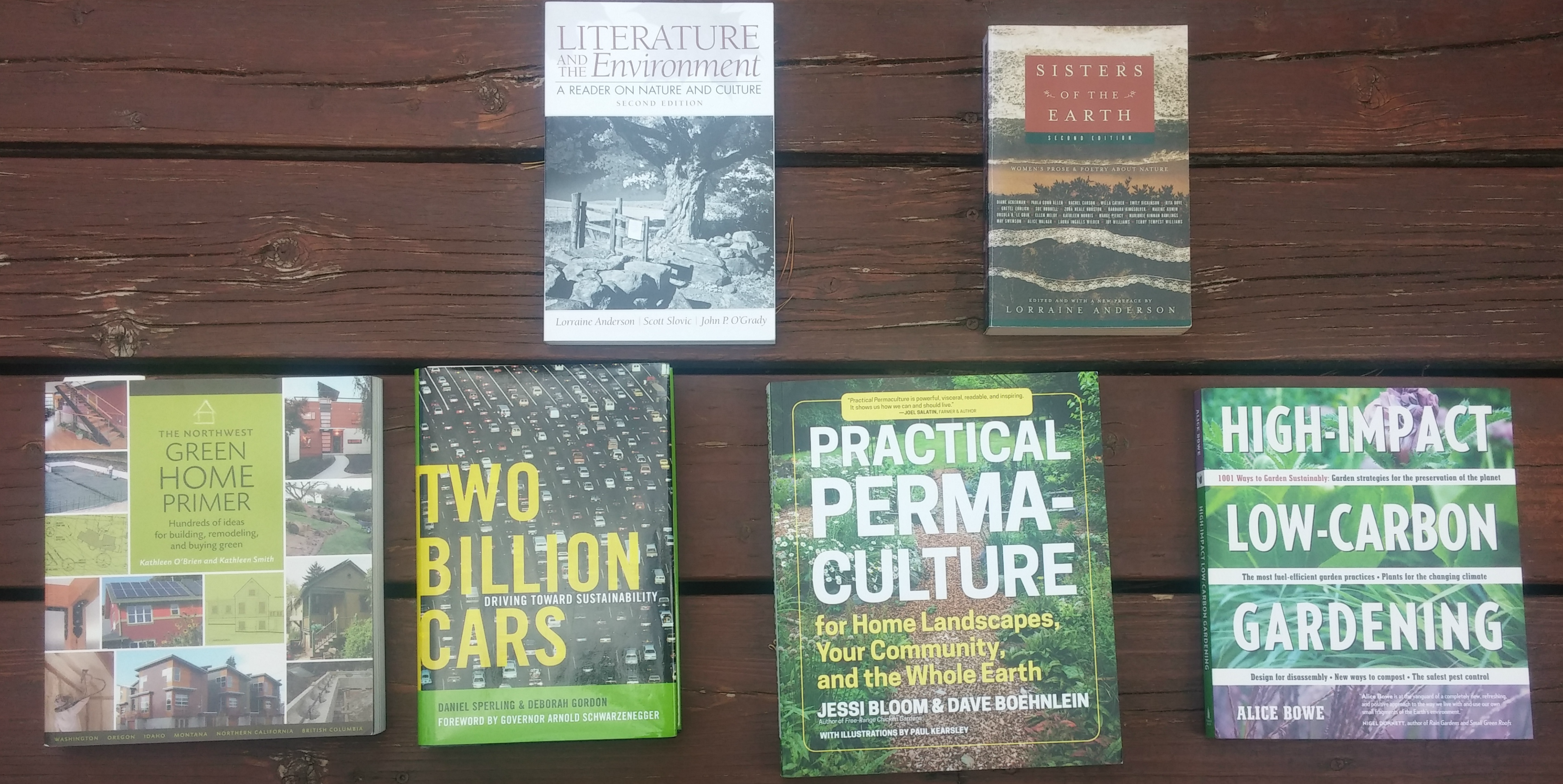
When I’m not working on someone else’s writing, I have my own creative projects going on. I compiled an anthology of women’s writing about nature called Sisters of the Earth, which came out in 1991 from Vintage Books and has sold more than 100,000 copies in two editions. After that I co-edited At Home on This Earth: Two Centuries of U.S. Women’s Nature Writing and Literature and the Environment. I collaborated on writing Cooking with Sunshine: The Complete Guide to Solar Cuisine. My latest book, due for release this December, is Earth & Eros: A Celebration in Words and Photographs, an anthology all about our intimate sensual connection to the Earth. I collaborated on that one with a fine arts landscape photographer whom I’ve known since the days when we worked at Apple together. In this age when so many of us live more online than on the land, I hope it will inspire people to return to the simple pleasures of the senses that bond us to this planet on which we’re entirely dependent.
What does being featured as the Local Business of the Week mean to you? It gives me a chance to reflect on my career, to educate people about what editors do, and especially to draw attention to the new books Earth & Eros and Wild in the Willamette. All royalties from WITW go to Greenbelt Land Trust, so buying it is not only a great way to get inspired about exploring nature close to home but also a big win for an organization that is doing fabulous work to protect wild lands in our little place on the planet for us and future generations. I hope to do a local reading from Earth & Eros sometime early next year.
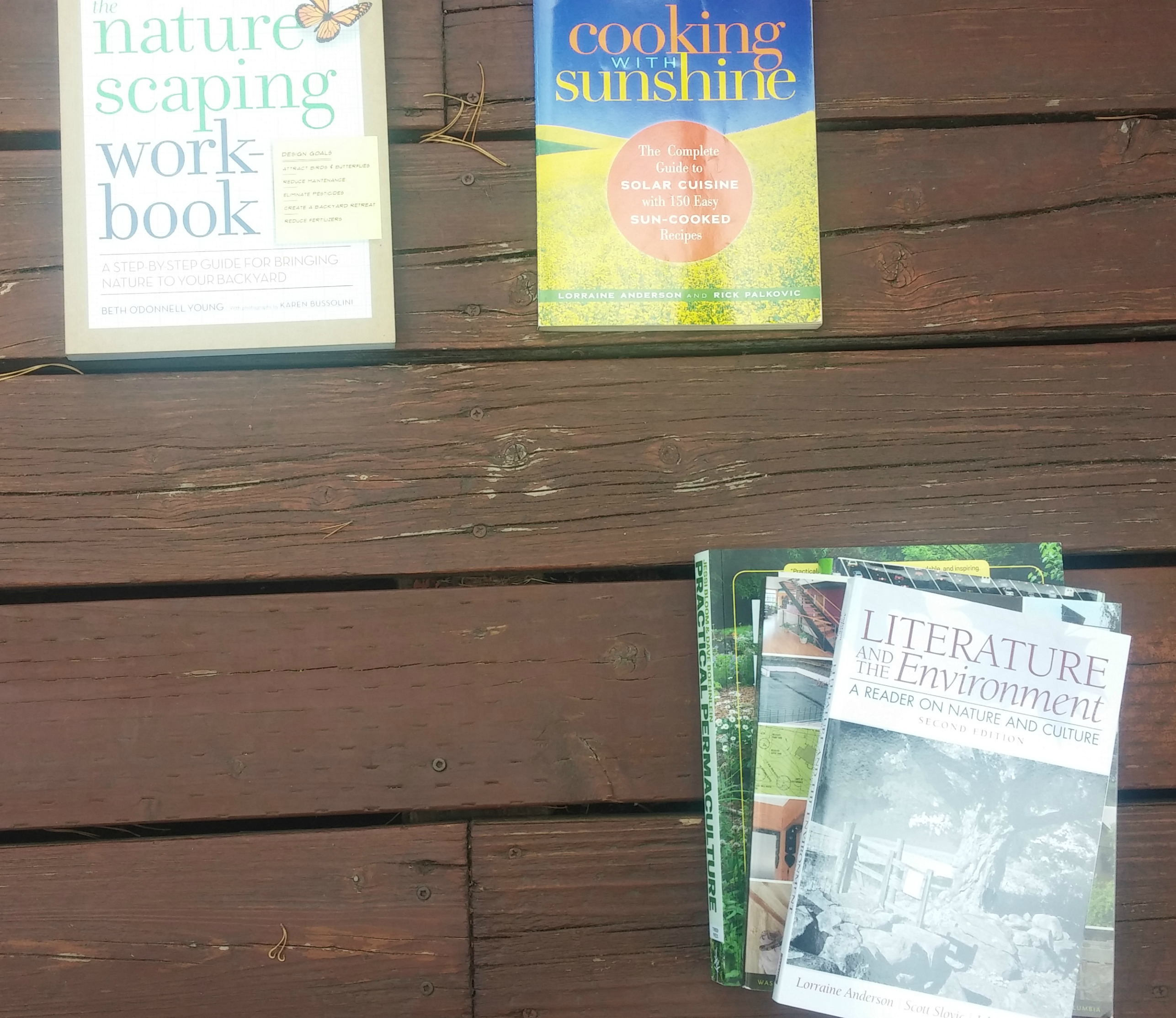
Do you fill an unusual niche? Yes, I do fill an unusual niche! I specialize in honing written language to help spread environmental messages.
What challenges have you faced as an independent local business owner, and how have you met those challenges? My two major challenges are the inherent isolation of working at home alone, and the feast-or-famine aspect of being a freelancer. How have I met those challenges? I have a feline companion adopted from SafeHaven Humane Society. I belong to both a writing group and a reading group to make sure I stay connected, and I go outside every morning to say hello to the world before I start working. I swim laps at Timberhill Athletic Club three mornings a week, so that means I say good morning to somebody before I go back home and start work. As for the feast-or-famine, I hold other jobs to try to even that out. I taught writing at the community college for six years, and nowadays my second job is playing my guitar and singing at Good Samaritan three afternoons a week as part of an amazing organization called ArtsCare. I’ve been a folksinger since college so it’s a really good fit, and I enjoy how different it is from my editing work.
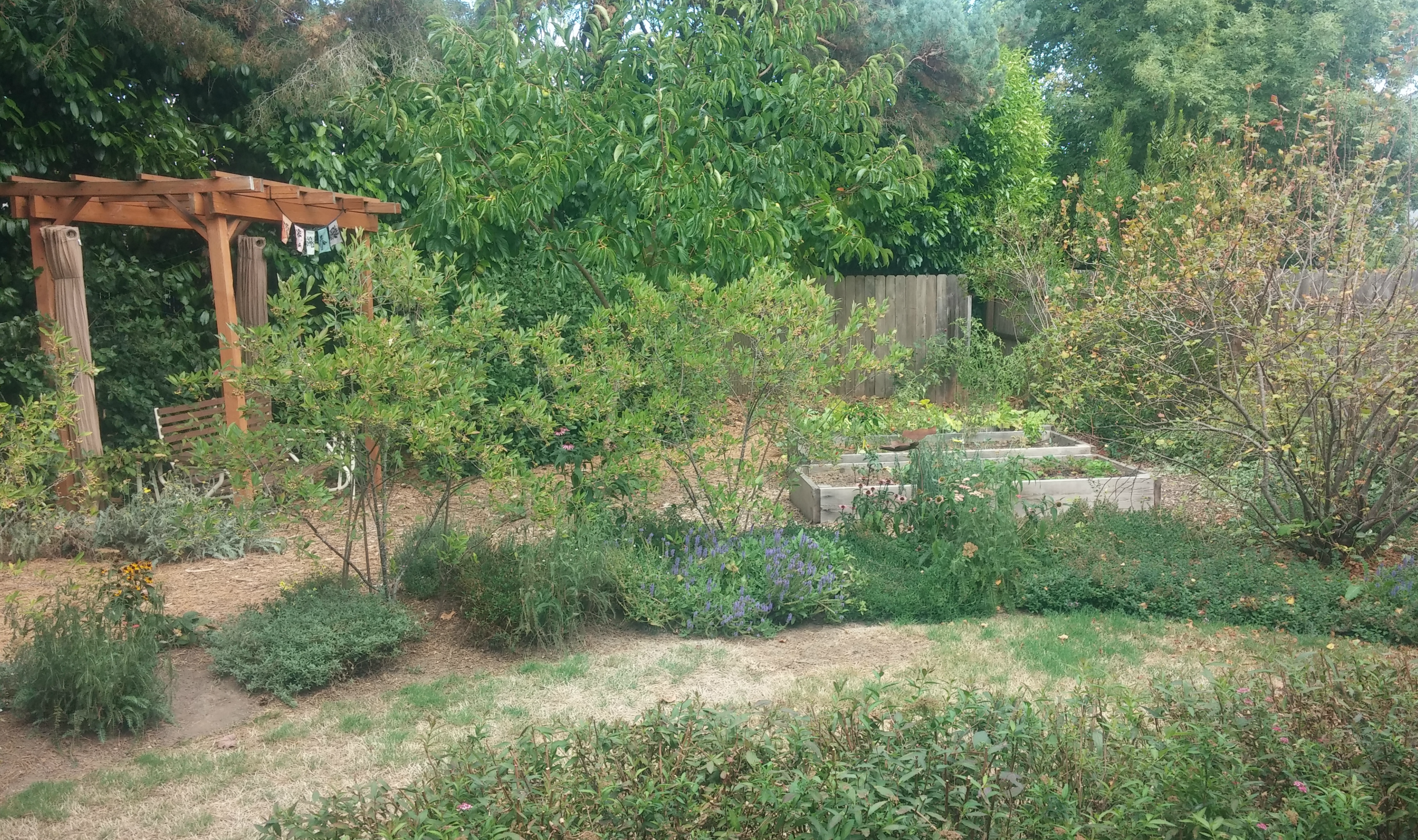
What do you feel is the impact of local independent businesses on Corvallis, and what does the future look like for the local independents? I can say from personal experience that local independent businesses bring more diversity to Corvallis. In 2004, when I had decided to leave California and find a new home, I drove across the country on a tour to promote the second edition of Sisters of the Earth and check out potential nesting sites. My last reading was at Grass Roots Books and Music in Corvallis, and local author Kathleen Dean Moore joined me in that reading. I found Corvallis very appealing and decided to move here.
Besides increasing diversity, our local independent businesses give employees a way to serve the community in a very personal way and to keep money in the community. Local businesses are more environmentally responsible in general than big chains, and they contribute in unique ways to the vibrancy of Corvallis. I think the future is bright for local independents, because decentralization, authenticity, and local customization are the way we’re going to maintain quality of life as the world comes up against environmental limits.
What do you enjoy most about owning a local, independent business in Corvallis? What excites or inspires you? I love the fact that my work aligns with my values and makes a positive difference in the world. How many people on the planet can say that about their work, really? I wish everyone could. What I’m excited about right now is how Wild in the Willamette demonstrates that creativity and imagination are renewable resources. That book was a community effort, contributed to by volunteers, and we have just begun to imagine what we can create together to bond us to this place.
What is your relationship to the community? What charities/nonprofits/civic organizations do you participate in? Locally, I belong to the Sustainability Coalition and the Corvallis Folklore Society, and I went through the Neighborhood Sustainability Steward training at OSU Extension. In the past I volunteered as part of the Sustainability Coalition’s Transportation Action Team; with the Folklore Society, I’ve produced concerts to help keep the traveling singer-songwriter tradition alive; as a Neighborhood Sustainability Steward, I maintain a drought-tolerant garden on a street corner in my neighborhood. I’m also a life member of the Sierra Club and occasionally go on outings with the local chapter.
How important is sustainability to you? Have you taken steps to increase the sustainability of your business model? Sustainability is very important to me. I work at home so I don’t have a commute. I completely retrofitted my house for sustainability after I bought it in 2006. I cut the kilowatt hours I use by 60 percent by installing new windows, insulation, and a heat pump, and I put solar panels on my house in 2010. So basically my office is energy efficient. I also installed a drought-tolerant garden in my backyard (which was just an expanse of lawn when I moved in) that has just produced a harvest of forty giant persimmons from one tree, not to mention tomatoes, squash, basil, raspberries, blueberries, and kale, to feed the proprietor of my business.
Please give us your one-sentence take-away message about your business. I help authors focused on environmental topics create the clearest, most direct, most accurate, most engaging message possible.
(Interview and article by Anya Callaghan – November 22, 2015)
 The Local Business of the Week program is designed to help the Corvallis community identify our locally owned independent businesses by featuring one business each week. The program is part of the Buy Local First campaign co-sponsored by the Corvallis Sustainability Coalition and the Community Independent Business Alliance (CIBA).
The Local Business of the Week program is designed to help the Corvallis community identify our locally owned independent businesses by featuring one business each week. The program is part of the Buy Local First campaign co-sponsored by the Corvallis Sustainability Coalition and the Community Independent Business Alliance (CIBA).

